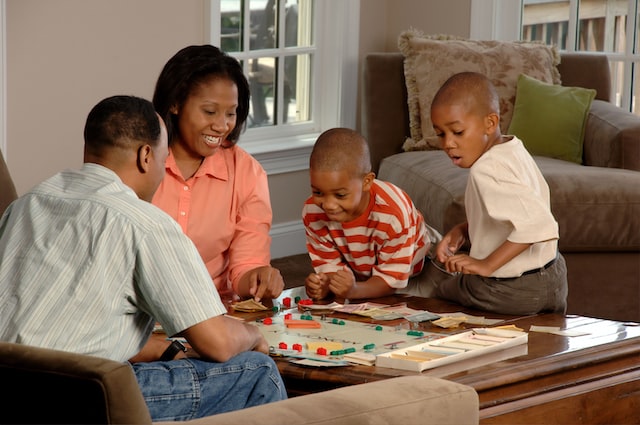Health Discussions with Children
When discussing health with children, keep in mind that children come in a variety of ages, maturity levels, and personalities. Each child will have their own unique viewpoint on health and wellbeing, so it is critical to approach the subject in a way that is appropriate for their age and level of knowledge.
It’s also important to note that health encompasses not just physical wellbeing but also mental and emotional wellbeing. Children may not always comprehend or describe how they feel. It’s up to the parents to be aware of their child’s behavior and to have open, honest, and non-judgmental conversations with them.
This week, I connected with Dr. Noha Polack, a board-certified pediatrician. She shared her view on how parents should talk to their children about health and weight, and what she has found most helpful in her private practice.
Some conversations, like talking about weight, can be uncomfortable.
But, the sooner you talk to your child about their health, the more comfortable they will be discussing it with you. This also helps to lay the groundwork for open and honest communication and a positive relationship. Both will be helpful as your child grows and experiences various health-related issues.
“Among the most sacred gifts you can give your child is the gift of health. This gift is best given by example."
- Dr. Rand Olson
Remember that discussing health is a continual dialogue rather than a one time chat. As children grow and develop, their perceptions of health and wellness will shift. As a parent, it’s a good idea to maintain regular check-ins and dialogues. It helps develop trust and a strong bond between you and your kids. And it promotes a healthy and happy upbringing.
Open and Honest Health Conversations
Open and honest communication about your child’s health is essential. For starters, it helps your child understand and accept responsibility for their own health. Children are more likely to take an active role in their own health when they understand how their body works, why certain things are beneficial or harmful for them, and how to make healthy choices.
It also helps youngsters in developing a positive relationship with their bodies and a positive self-image. Children who feel at ease discussing their health and bodies with their parents have a more positive self-image and a sense of control over their health.

And it keeps you, as a parent, up to date on your child’s health and wellbeing. When parents communicate openly and honestly with their children, they can hopefully become aware of any signs of potential health problems early on and take steps to address them.
Being open and honest can also make your child feel more at ease when discussing uncomfortable themes. Certain health-related issues, such as mental health or puberty, may cause children to feel embarrassed or humiliated. Children are more inclined to communicate their thoughts and feelings when their parents offer a secure and open environment for communication.
And, it can help in the development of healthy coping mechanisms for children. When children feel safe discussing their emotions, they learn how to process and deal with unpleasant emotions in healthy ways. This is critical for their physical, emotional, and mental wellbeing.
How to Talk to Your Children
Starting a talk with your child about their health can be a sensitive subject. It’s crucial to find the correct time and setting to ensure the conversation is fruitful and comfortable for both of you.
Choose a time when your child is relaxed and not rushed or agitated. When your youngster is weary, hungry, or in the middle of an activity, avoid starting a conversation. A good time to talk could be before going to bed or while riding in a car with them.
The language you use should be age-appropriate and easy to understand for your child. Instead of utilizing medical jargon, use basic, unambiguous words. Because children’s developmental stages and worldviews differ, tailor the dialogue to their age and stage of development. For example, when explaining topics to younger children, use visual aids, such as images or movies. You can discuss more complex themes with older children and use analogies from their own life to make the conversation more accessible.

Approach the conversation in a non-threatening, non-judgmental manner. Make it clear to your child that you are there to help and guide them, not to reprimand or lecture them. Otherwise they might shut you down before the conversation even gets started.
Use open-ended questions to encourage your child to discuss his or her thoughts and feelings. This can help you understand their point of view and gauge their level of understanding of the subject.
Pay attention to your child’s body language and reactions while you talk to them. Respect their boundaries and end the conversation if they appear uncomfortable or unresponsive. Avoid using fear or scare tactics to persuade your child to change their behavior. Instead, concentrate on giving accurate information and collaborating to discover answers.
Setting Healthy Examples FOR YOUR CHILDREN
Teaching healthy behaviors to children, such as good eating and exercise, is critical for their general wellbeing. A well-balanced diet is critical for children’s growth and development. It gives them the nutrition they need to create healthy bones, muscles, and teeth. Eating a balanced mix of fruits, vegetables, whole grains, and lean proteins can help youngsters maintain a healthy weight and lower their risk of chronic diseases, including heart disease, diabetes, and cancer.
Regular physical activity is vital for your child’s physical and emotional health. Exercise helps kids develop powerful muscles and bones, improves cardiovascular health, and can improve their happiness and self-esteem. It can also help lower the risk of obesity and other chronic health problems.

Children are more likely to adopt healthy habits if they learn them at a young age. You can help set your child up for a lifetime of healthy living by teaching them healthy habits at a young age. Children feel more in control and powerful when they learn how their body works and how to care for it.
Your child will also learn a lot by example, and you are likely their most significant role models. Parents can teach their children the value of having a healthy lifestyle by modeling it for them. Teaching children positive habits like healthy eating and exercise is important for their physical, mental, and emotional wellbeing.
It might be difficult to encourage healthy behaviors in youngsters, but there are practical ways to make it enjoyable and interactive. Here are some ideas for encouraging healthy behaviors while having fun.
Cooking Nutritious Meals with Your Children
Include your children in meal planning and preparation. This is an excellent way to teach children about healthy foods and how to prepare delicious and nutritious meals. Assign activities such as washing fruits and vegetables, measuring ingredients, and stirring to get your kids involved.

Make Healthy Food Selections Interesting and Interactive
Involve kids in the shopping process to get them interested in healthy meals. Allow children to choose new fruits and veggies at the grocery store to try at home. Make healthy snacks and meals into creative shapes and designs to make eating more enjoyable.
Take Family Walks with Your Children
Taking a stroll as a family can be a terrific way to bond while also getting some exercise. Turn it into a scavenger hunt or a nature walk to make it more enjoyable. If you have a dog, taking it for a walk every day could be a great way to get some walking in.
Incorporate Physical Activity Into Everyday Routine
Incorporate physical activity into children’s daily routines to encourage them to be active. You can, for example, encourage children to take the stairs instead of the elevator, to walk or cycle to school, or to take part in active games during recess.
ADDRESSING Delicate Issues WITH YOUR CHILDREN
Addressing delicate themes with children such as mental health, puberty, bullying, and substance misuse can be difficult. It is important for parents to have open and honest dialogues with their children about these matters. Simply not talking about them won’t make them go away. Your child might be scared or ashamed to broach the subject. Being there for them in a caring and non-judgmental way can help them open up to you.
If possible, discuss these topics with your child in an open and honest manner. Avoid being evasive or providing ambiguous responses, as these can lead to confusion or fear. Use language suited for your child’s age and level of understanding. Be an active listener and validate your child's thoughts and feelings.

To build trust, it is important your child knows she or he can come to you with problems and questions. Let them know you are always there to listen to them and help if they need it. Learn more about their questions and what they are experiencing. This will help you with answering your child’s queries as well as providing guidance and help.
Seek expert help if your child needs support coping with a sensitive issue. A doctor, therapist or school counselor can offer professional help and direction. They can also point you to resources such as books, websites, support groups and hotlines where you can get more information. Often, sensitive topics like bullying may require you to lean on community resources to support your child.
The Takeaway
Starting regular and continuing talks about your child’s health and wellbeing is an important part of parenting. You can help ensure your child has the information, advice, and support they need to make good choices and navigate challenging experiences. And although a healthy diet and enough physical exercise are essential, your child may experience many more challenges that impact their wellbeing.
Regular conversations can help you stay educated about your child’s physical and mental health and wellbeing. This will assist you in providing better guidance and support to them. Children grow and change quickly, and regular dialogues can help you adapt your communication approach to your child’s developing needs.

Children feel more empowered when their parents encourage them to take an active role in their own health and wellbeing through regular conversations. This allows children to make informed decisions and take responsibility for their own health. If you start these conversations at a young age, it will help your child feel more at ease discussing sensitive things with you when they get older.
Since children are like little sponges, be sure to lead by example.
Incorporate health and wellbeing conversations into daily routines such as mealtimes and bedtimes. This makes the interactions feel more normal and less scary. Encourage your youngster to ask questions and share their views and feelings. Listen actively and attentively to your child when they share and show your appreciation of their opinions and feelings.
And if you need some extra support and help, talk to a professional. You don’t need to do this alone.
There are many caring and supportive professionals, like Dr. Noha Polack, who can help you navigate your child’s health.
https://thejornipodcast.com/episode-43-how-to-talk-to-your-children-about-their-health-with-dr-noha-polack
